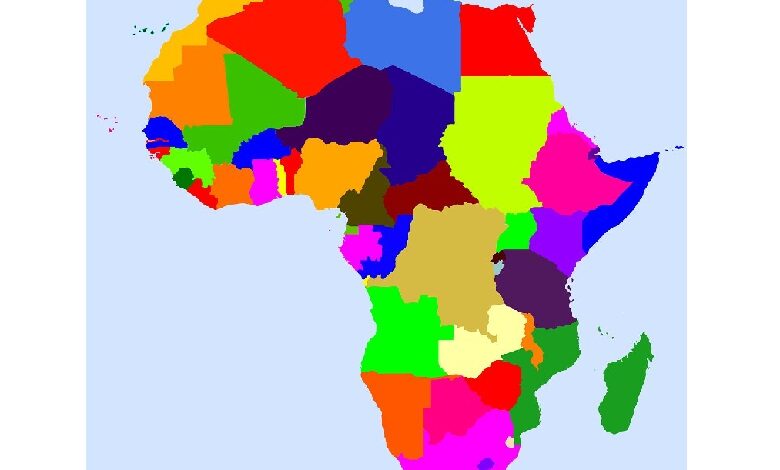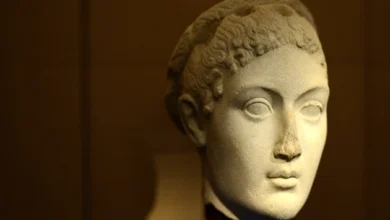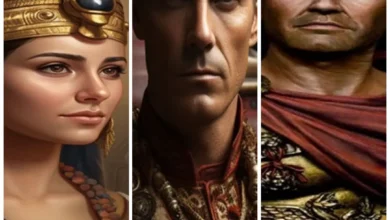Why is Africa called the land of contrasts?

On May 25, the world celebrates Africa’s Day. This day is commemorated each year in Africa and in the African diaspora to encourage rapprochement between the African peoples and of African origin to strengthen African unity and promote peace and stability for the development and socio-economic progress of the continent.
For a small reminder, May 25 is a memorable date of the signing of the Constitutive Act of the Organization of African Unity (OAU) in 1963, which subsequently became the African Union (AU) in 2002, in Addis Ababa in Ethiopia by the Fathers of the independence of Africa.
In effect, divided into 54 states in an area of more than 30 million square kilometres, with more than a billion inhabitants, almost 16% of the world’s population, Africa is a part of the planet Earth, which abounds enough natural and human resources likely to be transformed into real wealth for the benefit of its inhabitants.
To all those who have at heart Africa and its future, this day which is dedicated to her is an opportunity to reflect calmly and discuss the current political, economic and social situation of the continent and the behaviours of the actors that animate these various sectors of African society.
How is Africa doing?
Africa is a continent still experiencing serious difficulties preventing it from taking off collectively and tending towards its emergence. There is a real problem with democratic governance. It is a tiny minority of the ruling class that holds almost all the wealth of the continent. There are no reliable social structures for equitable redistribution of meagre financial resources available to a large section of the population who languish in indescribable poverty.
Africa may be considered the cradle of mankind, but it just serves to put its children to sleep but fails to provide enough food for their hunger, health care and quality education. And yet, it is full of immense mineral, forest and energy resources that could serve as a lever to create wealth and provide work for its people.
To better understand the current situation, we must go back to the 1960s, when the different territorial entities administered by the settlers gained their independence. Rene Dumont had already raised several concerns that he considered being a major handicap to the development of the African continent. His 1962 book entitled “Black Africa is badly off” had compiled a portrait inglorious the consequences of decolonization and revealed realities that the Africans then refused to see in the face.
Some intellectuals, and especially the African political elite, were scandalous, such a prediction that ran counter to the hopes of the time and the wave of euphoria elicited by the movement of African independence that swept the continent.
Alas, 53 years later, “Black Africa is badly off” of R. Dumont still remains relevant. Africa is still trampling and seems to have still not found its bearings. The African continent is undermined from the inside by armed conflicts. These civil and ethnic wars are often exploited from the outside, with all that entails human rights violations, predation of natural resources, and so on.
To this is added the question of the exercise of political power in a state of law and respect for the fundamental texts that govern the management of the Res publica. The current situation in Nigeria is an illustration of this.
The ideal of the Fathers of the independence of Africa, that of uniting the continent and promote economic integration, has proved over the years as a nightmare, otherwise a distant dream and hardly achievable. Africa is more than ever divided and cannot speak with a single voice on a number of crucial issues of continental interest.
Is there a future for Africa?
There is a place to say simply that where the afro-pessimists see the glass half empty, the afro-optimistic rather see the glass half full. Indeed, Africa moves and how the images are not often shown in the media, particularly in the west.
Africa is still facing enormous challenges in education, health, governance and environmental management. There is a lack of food, drinking water, electrical energy, and quality health care facilities.
Concerning issues related to the democratic process, including the organization of free and fair elections, Nigeria, the continent’s largest economic power, has given a lesson in democracy and peaceful alternation. Let’s hope that others will follow this beautiful example.
However, everyone needs to understand that establishing truly democratic regimes, good governance, and the judiciary’s independence are important principles for the lasting resolution of the continent’s ills.
With the growth rates recorded in recent years, a young and better-educated population, and immense natural resources, I am among those who think that Africa is a continent of the future, that its development is possible, provided that Africans seriously understand that it is imperative to rethink the school, the structures of governance and management of natural resources, etc.
Africans must avoid falling into fatalism, pessimism and resignation; on the contrary, they must have the conviction that it is possible to provide for the future to the thousands of young Africans today abandoned to their plight. These young people we saw manifest in the “Arab Spring” (in Tunisia, Egypt, Libya and, to a lesser extent, Algeria and Morocco), the “Y’en a mre” movement in Senegal, the “Balai citoyen” in Burkina Faso and the “Filimbi” in the Democratic Republic of Congo.
These events illustrate the frustration of young Africans who dare to challenge the regimes in place, while others face death every day trying to embark on makeshift boats in search of a “better life” in the Western World.
I will conclude by adding this: “Let’s make Africa the tree of life. To maintain the bonds that determine our destiny, let us all commit to the fight for lasting peace and justice on Earth. Unite all of us and work hard to give the best of ourselves to Africa, the cradle of humanity and source of culture…” excerpts from the Anthem of the African Union




